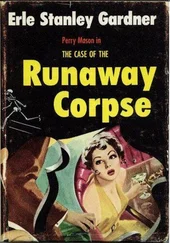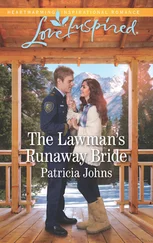John - The Runaway Jury
Здесь есть возможность читать онлайн «John - The Runaway Jury» весь текст электронной книги совершенно бесплатно (целиком полную версию без сокращений). В некоторых случаях можно слушать аудио, скачать через торрент в формате fb2 и присутствует краткое содержание. Жанр: Детектив, на английском языке. Описание произведения, (предисловие) а так же отзывы посетителей доступны на портале библиотеки ЛибКат.
- Название:The Runaway Jury
- Автор:
- Жанр:
- Год:неизвестен
- ISBN:нет данных
- Рейтинг книги:5 / 5. Голосов: 1
-
Избранное:Добавить в избранное
- Отзывы:
-
Ваша оценка:
- 100
- 1
- 2
- 3
- 4
- 5
The Runaway Jury: краткое содержание, описание и аннотация
Предлагаем к чтению аннотацию, описание, краткое содержание или предисловие (зависит от того, что написал сам автор книги «The Runaway Jury»). Если вы не нашли необходимую информацию о книге — напишите в комментариях, мы постараемся отыскать её.
The Runaway Jury — читать онлайн бесплатно полную книгу (весь текст) целиком
Ниже представлен текст книги, разбитый по страницам. Система сохранения места последней прочитанной страницы, позволяет с удобством читать онлайн бесплатно книгу «The Runaway Jury», без необходимости каждый раз заново искать на чём Вы остановились. Поставьте закладку, и сможете в любой момент перейти на страницу, на которой закончили чтение.
Интервал:
Закладка:
They scribbled notes and silently probed the faces. Juror number fifty-six, Nicholas Easter, received more than his share of concerned looks. He sat in the middle of the fifth row, dressed in starched khakis and a button-down, a nice-looking young man. He glanced around occasionally, but his attention was directed at a paperback he'd brought for the day. No one else had thought to bring a book.
More chairs were filled near the railing. The defense had no fewer than six jury experts examining facial twitches and hemorrhoidal clutches. The plaintiff was using only four.
For the most part, the prospective jurors didn't enjoy being appraised in such a manner, and for fifteen awkward minutes they returned the glaring with scowls of their own. A lawyer told a private joke near the bench, and the laughter eased the tension. The lawyers gossiped and whispered, but the jurors were afraid to say anything.
The last lawyer to enter the courtroom was, of course, Wendall Rohr, and as usual, he could be heard before he was seen. Since he didn't own a dark suit, he wore his favorite opening-day ensemble-a gray checkered sports coat, gray slacks that didn't match, a white vest, blue shirt with red-and-yellow paisley bow tie. He was barking at a paralegal as they strode in front of the defense lawyers, ignoring them as if they'd just finished a heated skirmish somewhere in the rear. He said something loudly to another plaintiff's lawyer, and once he had the attention of the courtroom, he gazed upon his potential jurors. These were his people. This was his case, one he'd filed in his hometown so he could one day stand in this, his courtroom, and seek justice from his people. He nodded at a couple, winked at another. He knew these folks. Together, they would find the truth.
His entrance rattled the jury experts on the defense side, none of whom had actually met Wendall Rohr, but all of whom had been briefed extensively on his reputation. They saw the smiles on the faces of some of the jurors, people who actually knew him. They read the body language as the entire panel seemed to relax and respond to a familiar face. Rohr was a local legend. Fitch cursed him from the back row.
Finally, at ten-thirty, a deputy burst from the door behind the bench and shouted, “All rise for the court!” Three hundred people jumped to their feet as the Honorable Frederick Harkin stepped up to the bench and asked everyone to be seated.
For a judge he was quite young, fifty, a Democrat appointed by the governor to fill an unexpired term, then elected by the people. Because he'd once been a plaintiffs lawyer, he was now rumored to be a plaintiffs judge, though there was no truth to this. Just gossip deliciously spread by members of the defense bar. In reality, he'd been a decent general practitioner in a small firm not noted for its courtroom victories. He'd worked hard, but his passion had always been local politics, a game he'd played skillfully. His luck had paid off with an appointment to the bench, where he now earned eighty thousand dollars a year, more than he'd ever made as a lawyer.
The sight of a courtroom packed with so many qualified voters would warm the heart of any elected official, and His Honor couldn't conceal a broad grin as he welcomed the panel to his lair as if they were volunteers. The smile slowly vanished as he completed a short welcoming speech, impressing upon them the importance of their presence. Harkin was not known for either his warmth or his humor, and he quickly turned serious.
And with good reason. Seated before him were more lawyers than could actually fit around the tables. The court file listed eight as counsel of record for the plaintiff, and nine for the defense. Four days earlier, in a closed courtroom, Harkin had assigned seating for both sides. Once the jury was selected and the trial started, only six lawyers per side could sit with feet under the table. The others were assigned to a row of chairs where the jury consultants now huddled and watched. He also designated seats for the parties-Celeste Wood, the widow, and the Pynex representative. The seating arrangement had been reduced to writing and included in a small booklet of rules His Honor had written just for this occasion.
The lawsuit had been filed four years ago, and actively pursued and defended since its inception. It now filled eleven storage boxes. Each side had already spent millions to reach this point. The trial would last at least a month. Assembled at this moment in his courtroom were some of the brightest legal minds and largest egos in the country. Fred Harkin was determined to rule with a heavy hand.
Speaking into the microphone on the bench, he gave a quick synopsis of the trial, but only for informational purposes. Nice to let these folks know why they're here. He said the trial was scheduled to last for several weeks, and that the jurors would not be sequestered. There were some specific statutory excuses from jury duty, he explained, and asked if anyone over the age of sixty-five had slipped through the computer. Six hands shot upward. He seemed surprised and looked blankly at Gloria Lane, who shrugged as if this happened all the time. The six had the option of leaving immediately, and five chose to do so. Down to 189. The jury consultants scribbled and X'ed off names. The lawyers gravely made notes.
“Now, do we have any blind people here?” the Judge asked. “I mean, legally blind?” It was a light question, and brought a few smiles. Why would a blind person show up for jury duty? It was unheard of.
Slowly, a hand was raised from the center of the pack, row seven, about halfway down. Juror number sixty-three, a Mr. Herman Grimes, age fifty-nine, computer programmer, white, married, no kids. What the hell was this? Did anybody know this man was blind? The jury experts huddled on both sides. The Herman Grimes photos had been of his house and a shot or two of him on the front porch.
He'd lived in the area about three years. His questionnaires didn't indicate any handicap.
“Please stand, sir,” the Judge said.
Mr. Herman Grimes stood slowly, hands in pockets, casually dressed, normal-looking eyeglasses. He didn't appear to be blind.
“Your-number please,” the Judge asked. He, unlike the lawyers and their consultants, had not been required to memorize every available tidbit about every juror.
“Uh, sixty-three.”
“And your name?” He was flipping the pages of his computer printout.
“Herman Grimes.”
Harkin found the name, then gazed into the sea of faces. “And you're legally blind?”
“Yes sir.”
“Well, Mr. Grimes, under our law, you are excused from jury duty. You're free to go.”
Herman Grimes didn't move, didn't even flinch. He just looked at whatever he could see and said, “Why?”
“I beg your pardon.”
“Why do I have to leave?”
“Because you're blind.”
“I know that.”
“And, well, blind people can't serve on juries,” Harkin said, glancing to his right and then to his left as his words trailed off. “You're free to go, Mr. Grimes.”
Herman Grimes hesitated as he contemplated his response. The courtroom was still. Finally, “Who says blind people can't serve on juries?”
Harkin was already reaching for a lawbook. His Honor was meticulously prepared for this trial. He'd stopped hearing other matters a month ago, and had secluded himself in his chambers, where he pored over pleadings, discovery, the applicable law, and the latest in the rules of trial procedure. He'd picked dozens of juries during his tenure on the bench, all kinds of juries for all kinds of cases, and he thought he'd seen it all. So of course he'd get ambushed during the first ten minutes of jury selection. And of course the courtroom would be packed.
“You want to serve, Mr. Grimes?” he said, trying to force a lighthearted moment as he flipped pages and looked at the wealth of legal talent assembled nearby.
Читать дальшеИнтервал:
Закладка:
Похожие книги на «The Runaway Jury»
Представляем Вашему вниманию похожие книги на «The Runaway Jury» списком для выбора. Мы отобрали схожую по названию и смыслу литературу в надежде предоставить читателям больше вариантов отыскать новые, интересные, ещё непрочитанные произведения.
Обсуждение, отзывы о книге «The Runaway Jury» и просто собственные мнения читателей. Оставьте ваши комментарии, напишите, что Вы думаете о произведении, его смысле или главных героях. Укажите что конкретно понравилось, а что нет, и почему Вы так считаете.












